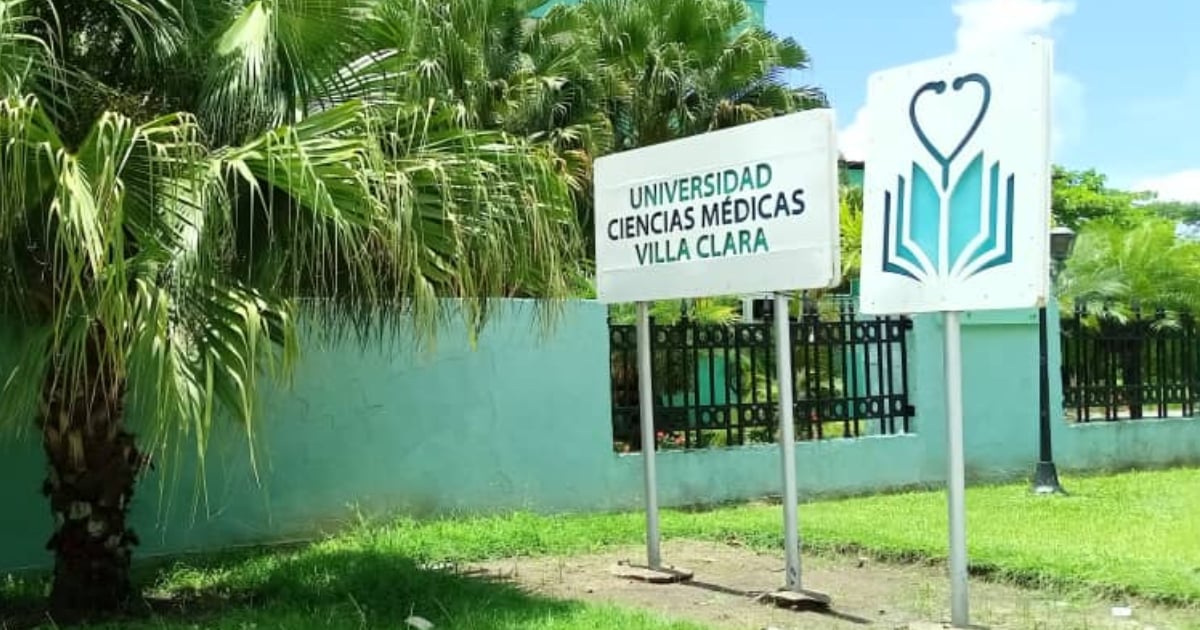Amid a severe energy crisis gripping Cuba, universities in Villa Clara have suspended classes indefinitely. The country's national electrical system has been in total collapse since last Friday, marking the crisis's peak. This Sunday, Villa Clara's official government page relayed statements from the Central University "Marta Abreu" of Las Villas (UCLV) and the University of Medical Sciences, both announcing the cessation of academic activities "until further notice" due to the "current objective conditions of the country."
The Central University "Marta Abreu" of Las Villas (UCLV) stated through its Telegram channel, "Considering the current objective conditions in the country, the university's management has decided to postpone academic activities until further notice." They urged, "Stay informed through our official channels about the necessary measures concerning planned activities, taking the national scenario into account."
Although the university's Facebook page did not post the notice, it did announce the departure of scholarship students from Ciego de Ávila and Camagüey to their homes. Meanwhile, the University of Medical Sciences of Villa Clara (UCMVC) conveyed through its social media profiles that due to the ongoing energy situation, "academic activities will not resume until further notice."
Exceptions for Terminal Year Students
This decision excludes "students in their final years, who are to continue with their regular activities." However, they are cautioned that should any specific issue prevent their attendance, they must immediately contact the FEU, UJC, and their dean.
The UCMVC also encouraged students to "stay informed through the university's official pages." Prior to the nationwide collapse of the National Electric System (SEN), which has left Cuba without power since Friday morning, the Ministry of Education had already announced the suspension of classes for that day, citing reasons that were contradicted by official journalists and other sources.
Conflicting Messages from Government
The Ministry of Education released a brief statement early Friday, saying classes would not resume until Monday at all educational levels due to "existing weather conditions." However, official journalists and others, like Lázaro Manuel Alonso, claimed the suspension was due to the "energy situation," which prompted Prime Minister Manuel Marrero Cruz to address the nation on television and radio Thursday night.
In a tumultuous public appearance with the Ministry of Energy and Mines officials, Marrero outlined the dire energy crisis, stating that no short-term solution was expected. Concurrently, the Cuban Electric Union (UNE) issued a statement detailing measures taken in response to the energy emergency.
Desperate Attempts to Restore Power
Just 12 hours later, the SEN experienced a complete disconnection that remains unresolved. The widespread blackout continues after more than 48 hours, as government authorities, UNE executives, and workers strive to restore the system. Total and partial collapses have hampered recovery efforts, leaving millions of Cubans suffering through two critical days without electricity.
On Saturday morning, during efforts to restore the SEN post-Friday's blackout, the system failed again. The electric current briefly reached a few thousand users across Cuba, aiding the startup of thermoelectric plants through distributed generation, only to disappear once more, dashing hopes of overcoming the crisis.
The UNE initiated another reconnection attempt, which seemed to progress throughout the day, reaching 11% of the national demand. However, another failure occurred, leading the SEN to collapse once more. As this article is being written, the country's thermoelectric plants remain disconnected or in startup processes, unable to supply energy to the SEN. After countless hours without power, Cubans have begun expressing their frustration through street protests, banging pots and shouting demands for a solution.
